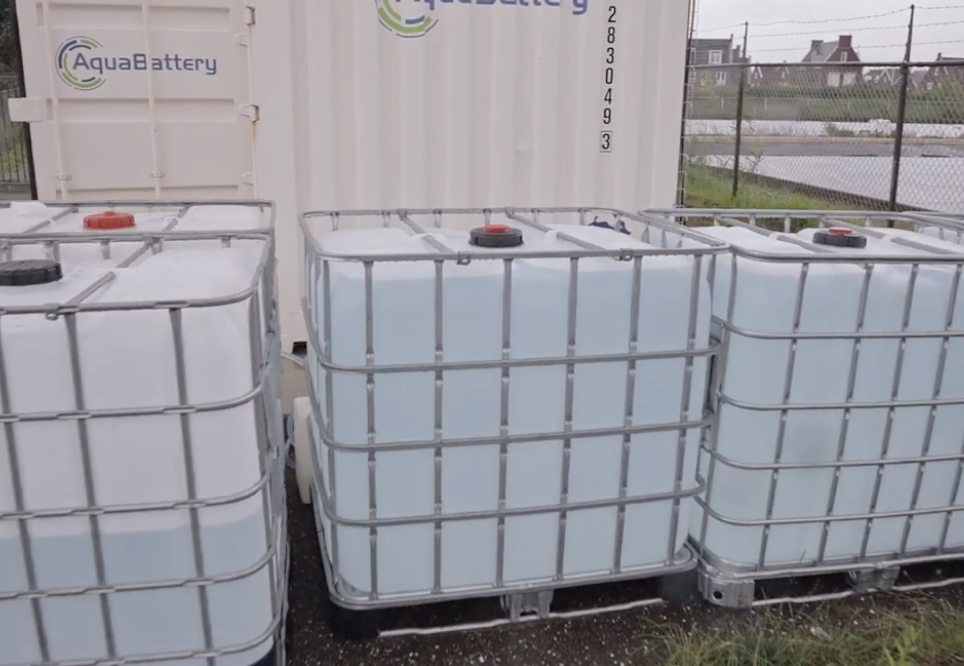Statkraft and Dutch startup Aquabattery have joined forces to develop the latter's long-duration storage solution based on saltwater.
The two companies will test the storage technology in a pilot project for six to 12 months in Delft, the Netherlands. The objective is to investigate the scalability of Aquabattery's technology and its commercial viability.
Aquabattery's patented storage technology uses saltwater as a storage medium. The tech is described as a flow battery that is able to independently amend power (kW) and energy (kWh) capacity. It is also said to be low-cost, highly scalable, and sustainable, as it uses only water and table salt, with its storage capacity being expandable by just adding water reservoirs or using larger tanks.
The battery system uses three storage tanks, one with fresh water, one with concentrated salt water and one with diluted salt water, and also relies on membrane stacks. During the charging phase, the diluted salt water is split into concentrated salt water and fresh water in the membrane stack and stored separately.
The separation is achieved through electrodialysis (ED), which is a separation process in which charged membranes and electrical potential differences are used to separate ionic species from an aqueous solution and other uncharged components.
In the discharging phase, the two streams are combined and the resulting energy is converted to electricity with the help of the membrane stack through reverse electrodialysis (RED), which is a technology to generate electricity from the salinity difference between two solutions, for example, seawater and river water.
This content is protected by copyright and may not be reused. If you want to cooperate with us and would like to reuse some of our content, please contact: editors@pv-magazine.com.



By submitting this form you agree to pv magazine using your data for the purposes of publishing your comment.
Your personal data will only be disclosed or otherwise transmitted to third parties for the purposes of spam filtering or if this is necessary for technical maintenance of the website. Any other transfer to third parties will not take place unless this is justified on the basis of applicable data protection regulations or if pv magazine is legally obliged to do so.
You may revoke this consent at any time with effect for the future, in which case your personal data will be deleted immediately. Otherwise, your data will be deleted if pv magazine has processed your request or the purpose of data storage is fulfilled.
Further information on data privacy can be found in our Data Protection Policy.